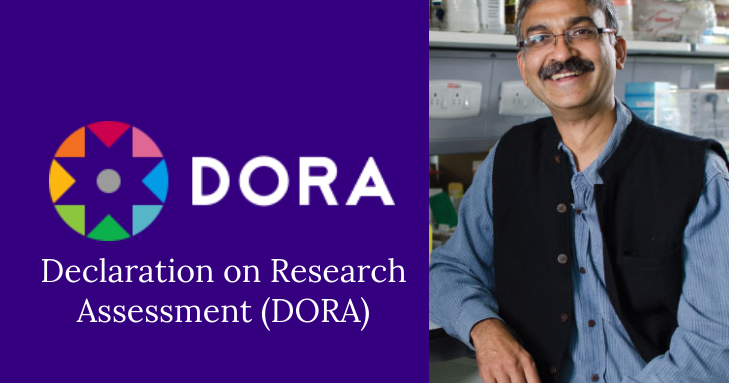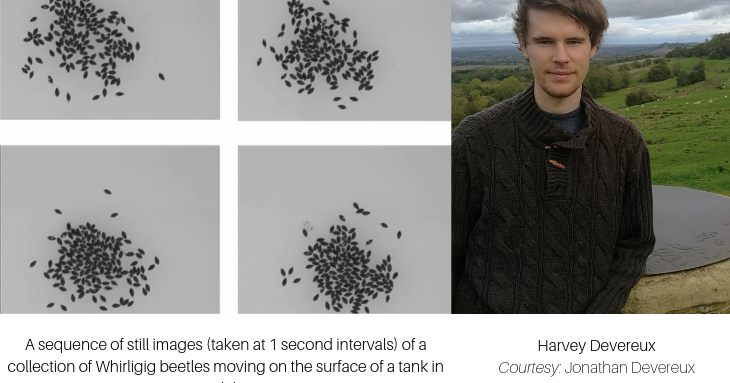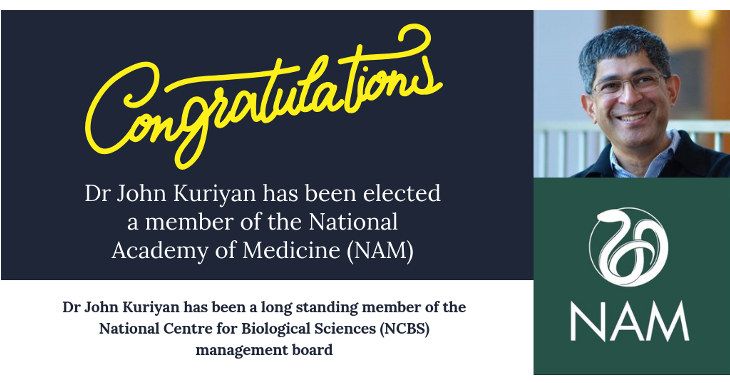-
Prof Mayor signs on as advisory member of DORA
We are pleased to announce that Prof. Satyajit Mayor has signed on as an advisory member of the Declaration on Research Assessment (DORA). DORA recognizes the need to improve the ways in which the outputs of scholarly research are evaluated. It is a global initiative encompassing all scholarly disciplines and the key stakeholders include funders, publishers, professional societies, institutions, and researchers.
-
New skin gel offers protection from some pesticides
A team led by Dr. Praveen Kumar Vemula from the Institute for Stem Cell Biology and Regenerative Medicine (inStem), Bengaluru, an autonomous institute under the Department of Biotechnology, used a chemical reaction to convert the ester into acid by using a catalyst to make the pesticide inactive.
-
This gel can protect farmers from toxic pesticides
Indian farmers usually do not wear any protective gear while spraying chemicals in fields. This exposes them to harmful toxics contained in pesticides, causing severe health impacts and even death in extreme cases. Indian scientists have now developed a protective gel to address this problem.
The gel, named poly-Oxime, has been prepared by researchers at the Institute for Stem Cell Science and Regenerative Medicine (InStem), Bangalore from a nucleophilic polymer.
-
Strengthening Collaborations
2018 seems to be a great year for the Simons Centre at NCBS in terms of collaborative science! With our faculty having embarked on various collaborative visits across our partner institutions, as well as having hosted numerous collaborators at NCBS, Bangalore this year (Prof. Stephan Herminghaus, MPI-DS, Gottingen; Prof. Frank Jülicher, MPI-PKS, Dresden; and Dr. Timothy Saunders, MBI, Singapore to name just a few), we are always looking to push the boundaries of collaborative science.
-
Loss of a microRNA molecule boosts rice production
A team of researchers from the National Centre for Biological Sciences, Tata Institute of Fundamental Research in India led by Dr. P.V. Shivaprasad wondered whether another type of molecular regulator, named microRNAs, also contributed to the domestication of rice. We hope that our finding promotes future research to identify other changes associated with domestication of plants, spearheading further improvement in crops for the future," states Dr. Shivaprasad.
-
Dr John Kuriyan elected to the National Academy of Medicine
We are proud to announce the election of Dr John Kuriyan (University of California, Berkeley, USA) to the prestigious National Academy of Medicine. The National Academy of Medicine is an independent organization of eminent professionals from diverse fields including health and medicine; the natural, social, and behavioural sciences; and beyond.
-
A Peek Inside NCBS Bengaluru’s Upcoming Scientific Archive
From Old Letters Preserved In Godrej Cabinets To One-Of-A-Kind Scientific Equipment, A Peek Inside NCBS Bengaluru’s Upcoming Scientific Archive.
The archive will be open to everyone, and its curator hopes that someday it will be part of an interconnected digital archive of science that enables storytelling across different disciplines.
-
Surfing on calcium waves: A larva's journey to becoming a fly
Eric Carl, in his much-loved children's book, "The Very Hungry Caterpillar", takes us through the transformation of a gluttony caterpillar into a beautiful butterfly. For a scientist, however, this book is a Pandora's box of questions. How does the caterpillar know when to stop eating? Had he not eaten so much, would he have ever moved on into the cocoon?
-
Following the sound trail: pulling India’s cicadas out of oblivion
Kiran Marathe, a young 20-something researcher from the National Centre of Biological Sciences (NCBS), Bengaluru, works on one of India’s most under-studied species of insects — the cicadas. Two new species of cicadas have been discovered in the Western Ghats, one in Goa and the other in the Kodagu district of Karnataka.
-
Genes of famed big cat Machhli to be mapped
A team of geneticists, conservation biologists and wildlife officials are in the process of preparing a genetic map — that is, tracing out the sequence of genes — from Machhli’s DNA, which was extracted at the time of her death. Dr. Uma Ramakrishnan, at the National Centre for Biological Sciences (NCBS), Bengaluru, is leading Machhli’s genome analysis.
















